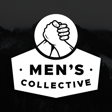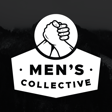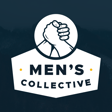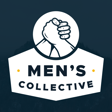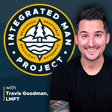
The 7 Primal Questions: A Journey into Personal Growth (feat. Sam Powers)
Welcome back to The Integrated Man Project! In today's episode, we dive into an incredible journey of self-discovery and musical memories with our returning guest, Sam Powers. We'll revisit Sam’s exhilarating experience at a Coldplay concert, delve into the emotional depths of the Enneagram, and explore the profound impact of Mike Foster’s "7 Primal Questions." Alongside our deep discussions, expect some nostalgic music talk—from Radiohead’s groundbreaking "Kid A" to the intense live performances by Muse and Blink-182.
We'll also uncover personal anecdotes about overcoming insecurities, living authentically, and the transformative power of being present for your loved ones. Join Travis Goodman and Sam Powers as they share heartfelt insights, celebrate the importance of appreciation, and continue their quest to unlock purpose and fulfillment. Don’t forget to stick around for exclusive updates and join our thriving community. Let's get integrated!
Key Points and Highlights:
- Coldplay Concert Experience: Sam Powers shared his exhilarating experience attending a Coldplay concert where they performed their early albums, "Parachutes" and "A Rush of Blood to the Head." He compared it to the raw energy of seeing U2 in their early days, emphasizing the transformative power of live music.
- 7 Primal Questions: Sam delved into the crucial 7 Primal Questions explored in Mike Foster's book, which deeply influence our actions and relationships. He highlighted questions like "Am I good enough?" and "Do I have a purpose?" and shared how addressing these questions has helped him guide clients toward a more authentic and fulfilling life.
- Music and Personal Growth: The conversation touched on the profound impact music has on personal growth and memory. Both Travis and Sam discussed their musical journeys, favorite bands, and how music serves as a powerful conduit for emotions and life experiences.
Challenge Question: Reflect on one of the primal questions we discussed today. Which question resonates with you the most, and why? How does this question influence your daily actions and relationships?
GRAB THE BOOK: 7 PRIMAL QUESTIONS - HERE
JOIN THE MAILING LIST & GET INVOLVED!
WATCH ON YOUTUBE:
Connect and Support Sam:
Instagram: swamipowers
Web: www.sampowerscoaching.com
Connect and Support Travis:
YouTube: Travis Goodman
Instagram: @integratedmanproject
Check out the Website: IntegratedManProject.com
